Growing citrus trees is incredibly rewarding, especially when you bite into a delicious slice of sweet, tangy fruit. Maybe oranges are your favorite citrus fruit, or maybe growing lemons is your cup of tea. Whatever type of citrus tree you prefer to grow, they all require nutrients to grow their best and produce fruit.
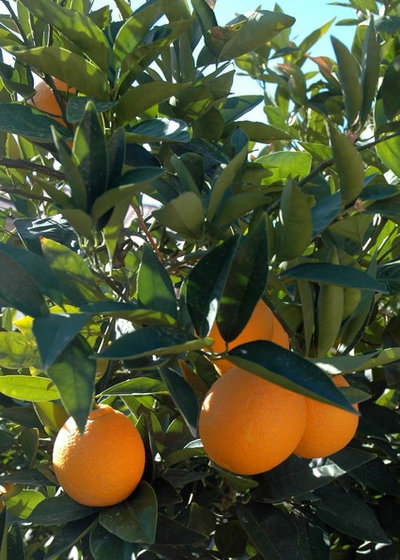
Noelle Johnson Landscape Consulting
Mature citrus trees need three applications of fertilizer spread throughout the year. Fertilizer should be applied in winter, late spring and late summer. An easy way to remember when it's time to fertilize citrus trees is by the holidays Valentine's Day, Memorial Day and Labor Day.
Macronutrients. Citrus trees need nitrogen, phosphorus and potassium, which are called macronutrients. They are often referred to as NPK. Of these macronutrients, nitrogen is the most important for a healthy tree and a good citrus crop.
Fertilizers have three numbers listed on the labe, referring to the percentage of nitrogen, phosphorus and potassium they contain.
Shown: Blood oranges
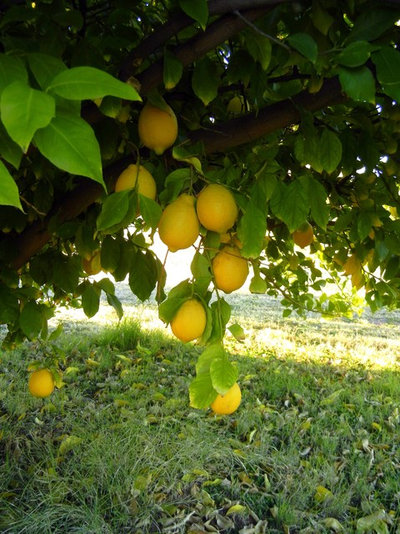
Noelle Johnson Landscape Consulting
Micronutrients. In addition to macronutrients, micronutrients are also vital for citrus tree health. These are iron, manganese and zinc.
Shown: Lemons
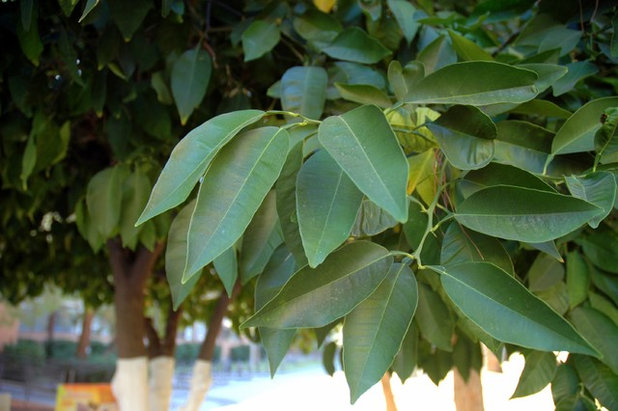
Noelle Johnson Landscape Consulting
What type of fertilizer should you use? Citrus fertilizers are available in a variety of forms. Granular is the most popular and is easy to apply. There are also liquid and spike forms available. Using fertilizers specially formulated for citrus is recommended, since those generally provide both macronutrients (NPK) and micronutrients, and are easily applied.
Organic fertilizer is available with the same nutrients as well.
Shown: Healthy citrus leaves
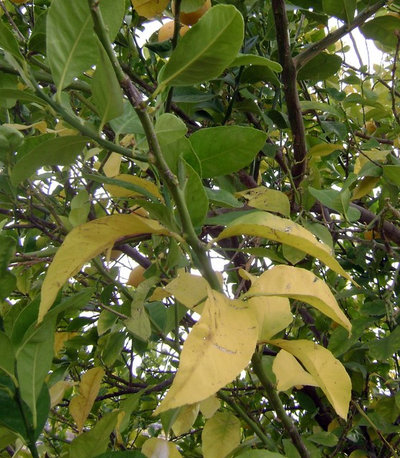
Noelle Johnson Landscape Consulting
Yellowing older leaves are a sign of nitrogen deficiency. A foliar (liquid) spray with nitrogen works quickly for nitrogen deficiencies.
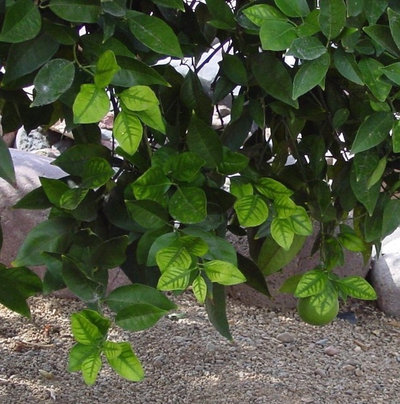
Noelle Johnson Landscape Consulting
Here we see leaves displaying signs of manganese deficiency. Iron deficiency is also something to look out for. Newer leaves will be light green with dark green veins.
Micronutrient deficiencies can be treated with a spray that contains iron, manganese and zinc.
Tip: Carefully follow the package directions when applying any spray to citrus. Applying it when temperatures are too high can burn the foliage.
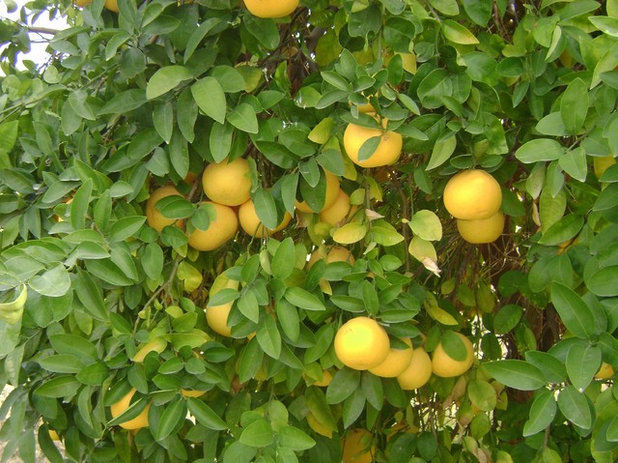
Noelle Johnson Landscape Consulting
Fertilizer Guidelines - Follow the directions on the fertilizer bag carefully. Citrus fertilizers vary in the amount of nitrogen and other nutrients they contain. The label will tell you much fertilizer you need and how to apply it.
- How much fertilizer to apply is based on the size and age of your tree as well as the percentage of nitrogen in the fertilizer you are using. To figure out how much to apply, follow the directions on your fertilizer package or refer to a fertilizing citrus chart. Be sure to divide by three the annual amount of fertilizer needed. Don't apply it all at once!
- Lightly rake granular fertilizer into the top inch or two of soil.
- Water the entire area underneath the tree before and after applying fertilizer.
Shown: Grapefruit
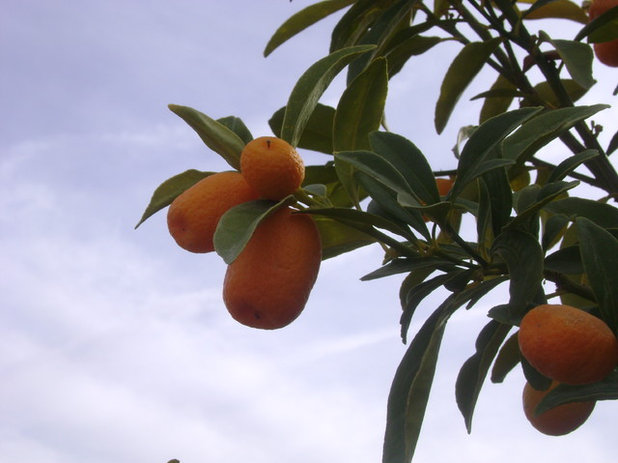
Noelle Johnson Landscape Consulting
- If you decide to apply a foliar fertilizer to the leaves, be sure to do so when temperatures are below 85 degrees Fahrenheit. Leaves can be burned by the fertilizer otherwise.
- Newly planted trees don't need fertilizer for the first year. Wait until they have been in the ground for at least a year.
- When in doubt as to how much fertilizer to apply, use slightly less than recommended, since adding too much fertilizer can harm your tree.
Shown: Kumquats





